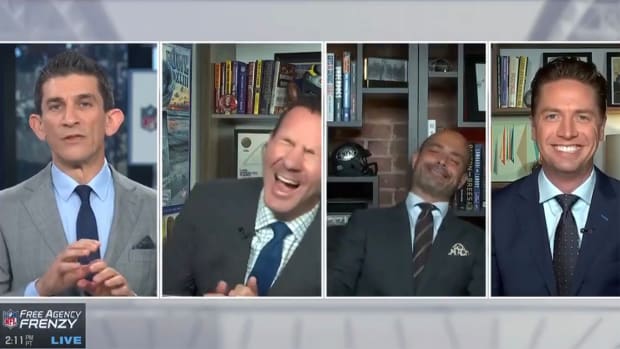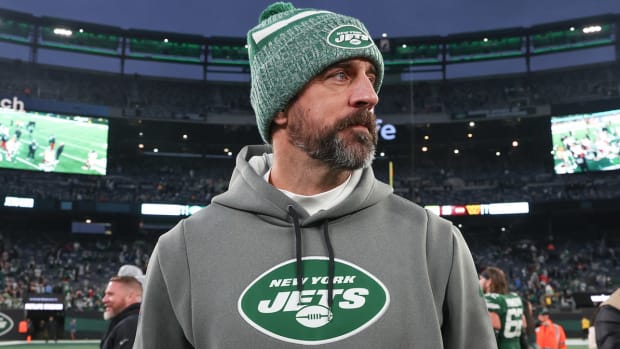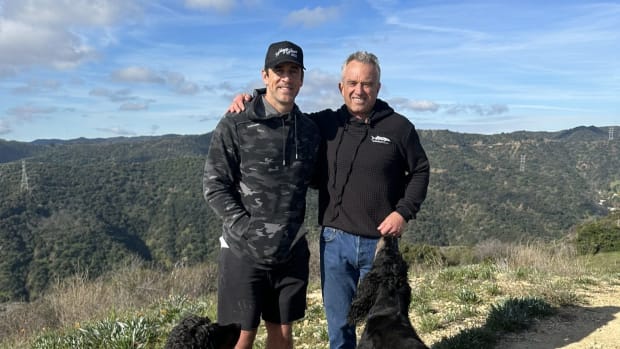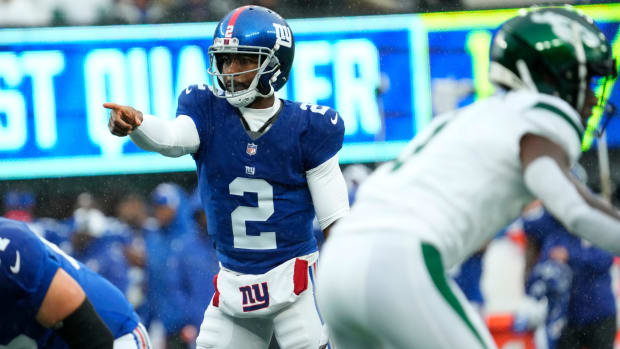As NFL free agency reshapes the rebuilding New York Jets, the 'Douglas Doctrine' emerges
After three days of NFL free agency and almost a week since legal tampering began, the New York Jets have not been the big haymaker that most anticipated. The Jets have been active, for sure, addressing multiple needs. But they haven’t been flashy about it.
Instead, they have been remarkably restrained.
And from this past week of the offseason and free agency, a new dye has been cast for general manager Joe Douglas, who was a bit of a mystery since being hired last offseason after the NFL Draft. He is patient and shrewd. Dogmatic when necessary. Dedicated to his valuations and above all, cognizant of salary cap constraints and future flexibility.
From this emerges a clearer picture of how Douglas will rebuild this team. From this past week, there is now a Douglas Doctrine.
Those close to Douglas talk about him as someone with a solid vision, who will prioritize the NFL Draft as the way to complete the Jets rebuild. Douglas himself has said as much. In free agency, it is clear that he won’t spend simply to spend and that he won’t get caught in a bidding war. It is a fresh outlook for an organization that, over the past decade, has all too often struggled to get out of its own way when it comes to building a team.
The Jets have been at extremes in recent years, either incredibly frugal for no apparent reason and at other times downright reckless with the checkbook. The whole time, they have rarely shown constraint and have very often been pressured into risky signings and reach deals for questionable free agents. This is New York, after all, and the pressure can be immense on those who make decisions that impact the area’s teams.
Through three days of free agency, Douglas has shown that is not to be the case. He hasn’t gotten into a bidding war. Instead, he’s sought the second tier free agents, many with upside and potential but underappreciated with their former teams. He hopes that they can collectively take a step forward with the Jets.
Given their contracts, such as those given out to George Fant and Connor McGovern, it is a low-risk, high-reward proposition for a team that hasn’t been to the playoffs since 2010.
It shouldn’t be a surprise that Douglas won’t overspend. It also shouldn’t be a shock that he would prioritize the draft and not free agency as the mechanism with which to execute his rebuild.
He spent 14 years with the Baltimore Ravens at the start of his personnel career, learning under general manager Ozzie Newsome. He then took professional steps at his next two stops before landing with the Jets last offseason, most recently as Vice President of Player Personnel with the Philadelphia Eagles where he won a Super Bowl.
It is in Baltimore, however, where this Douglas Doctrine began to be shaped. Now here with the Jets, this Douglas Doctrine is being put to work.
The Ravens have been notoriously good at drafting. Two years after winning the Super Bowl in 2012, they had six first round picks that they selected on their roster and another six second round picks. By comparison, the Jets currently only have four players on their entire roster selected from the first two rounds of the draft.
Not so good. When Larry David has a better track record of drafting than the previous two general managers, that can certainly curb a fan’s enthusiasm for the Jets.
This terrible track record indicates that the Jets not only whiffed on players and wasted draft selections, but that they are at a serious talent deficiency compared to teams like Baltimore, who consistently swing well at the NFL Draft. This means that the Jets have to rely on a disproportionate number of undrafted rookie free agents and free agents to fill out their roster.
That they’ve been terrible in free agency too, only compounds the errors and misses of the NFL Draft.
Which brings the Jets to the here and now with the unveiling of the Douglas Doctrine, what with its prudence in free agency and emphasis on the draft. In Baltimore, Newsome built with players he drafted and then supplemented in free agency with a mix of under the radar free agents and proven veterans.
The end result was a franchise that was remarkably solid and consistent over the past decade, often without mercenary free agent stars. There were a few, but they weren’t the core of the Ravens.
In many ways, it hasn’t been the offseason that many expected from the Jets. They haven’t gone after big names as they’ve done so many times in the past. There has been action though albeit pragmatic, measured and decisive. That hasn’t always happened on One Jets Drive either.
The Douglas Doctrine isn’t likely to win over many fans with hopes of excitement for 2020…the tailgate might still be the most exciting part of Jets home games for the next season. But there is a direction, a clear one at that, under Douglas.
It might fail. Most of the general managers who have come through here have not gotten it right. But Douglas learned from Newsome, one of the best personnel minds in the business, how to construct a team.
It requires patience and singular dedication to not abandon the virtues of restraint. There is a sole way to build and it requires shutting out external pressure. In his first full offseason with the Jets, Douglas has shown over the past week that his focus and dedication to the core beliefs of this Douglas Doctrine are unwavering. It is a firm conviction in how he conducts business.
Douglas and his doctrine might fail. But for the first time in a long time, the Jets have a man with a plan.
That alone feels just a little bit like winning.





